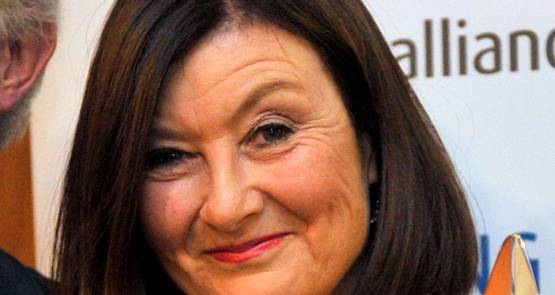
Ask an executive (or editor) what his or her biggest regret is, and you’ll often get a self-serving answer.
But as he gave what was probably his last interview as editor-in-chief of The Australian to the ABC’s Media Report, Chris Mitchell was surprisingly candid:
“I think the one that really pained me was [Sydney Morning Herald investigative reporter] Kate McClymont’s stuff on the Bulldogs, and the links with shopping centre developments and the Labor Party that grew into the full Eddie Obeid/ICAC revelations we saw in 2012. I felt, as a newspaper editor, powerless to attack that story or to try and steal it.
“My strategy if someone else’s got a good story is [not to] do what other editors do: they try to ignore it. I try to take it off them. So if I think the Herald’s got something that’s fantastic, I’ll throw twice as many resources at it and try and take it over.
“It was an eye-opener for me that at the time I needed to sharpen up the reporting skills of the Oz. Because we couldn’t make a dent against Kate.”
The outgoing editor-in-chief isn’t given to publicly praising competitors. McClymont’s investigation (with colleague Anne Davis) of the NRL Canterbury Bulldogs’ salary cap scandal would win her the Gold Walkley in 2002, and her work on Eddie Obeid kicked off a series of Independent Commission Against Corruption inquiries into NSW Labor figures and likely played a key role in the party’s New South Wales electoral defeat. Mitchell’s praise comes at a curious time, given his paper has spent months running pieces questioning McClymont’s professional integrity.
The latest salvo came in the Weekend Australian, courtesy of former Media editor (now senior reporter) Sharri Markson. While much of her argument is more concerned with ICAC’s operations than those at Fairfax, she accuses the SMH in particular of enabling the anti-corruption body’s excesses through uncritical reporting.
“McClymont and Herald state political editor Sean Nicholls seem to have become activists, appearing to protect ICAC, even as ICAC’s architect, Gary Sturgess, wrote an op-ed in their newspaper stating he had lost confidence in the body he designed,” Markson wrote. The piece also accused McClymont of having “tied her fortunes” to the anti-corruption body, and of having failed to “maintain a healthy cynicism about ICAC and its methods”.
The paper implies the investigative reporter is the frequent beneficiary of leaks by ICAC about its ongoing investigations, which serve to tarnish the reputations of those ICAC is investigating and boost the body’s influence (even if ICAC later finds no wrongdoing against those it has investigated). Subjects of ongoing ICAC investigations are unable to defend themselves in public — they are gagged from speaking to the media.
Many critics of ICAC, or those investigated by it, have at one time or another accused the body of leaking to Fairfax. Former Labor senator Graham Richardson was quoted in Markson’s piece as having said, “The Sydney Morning Herald has been the beneficiary of ICAC’s illegal leaking for more than two decades”, and thus the paper was, in his opinion, reluctant to criticise the body as it was protecting “an invaluable source”.
But McClymont has repeatedly denied she has been the beneficiary of leaks from ICAC. At the Andrew Olle Lecture last month, in an angry confrontation widely observed by members of the media industry, McClymont approached Markson and denied ICAC had ever leaked to her.
Speaking to Crikey this morning, McClymont declined to comment on the Oz’s criticisms of her reporting, saying only: “I prefer to let my journalism speak for itself.”
Retired academic Norman Thompson, who for several years ran the DemocracyForSale research project looking at political donations, told Crikey that that many of ICAC’s investigations would never have come about without the Sydney Morning Herald’s reporting.”And Kate McClymont was instrumental in that,” he said. He praised her ongoing scrutiny of the issue, saying she had for years been a frequent fixture at committee hearings to examine political donations.
Over the time he was scrutinising political donations, Thompson says he had dealings with a number of Fairfax reporters, including current Herald NSW state political editor Sean Nicholls. “And I’ve been incredibly impressed by their integrity — all of them,” he said.








If only, Myriam, the media had played a stronger role when a few lone voices were speaking out against the corruption.
As with the early rapes on trains on the Campsie – Bankstown Line, when the media IGNORED Police Media Releases until it became impossible to cover up.
Vale Media Integrity Standards.
I have NO time for McClymont…she destroyed Craig Thomson’s life…was totally wrong about his so-called criminal activities…and to my knowledge, has not apologised for her li*s.
The book on Jacksonville should be out next year, courtesy of Independent Australia investigative journalists, at which time we will all know the truth of her deceit.
Yet another MSM beat-up with overwhelming bias included!
CML my feelings exactly. I really would like to know the hold Jackson had over the media or does investigative journalism these days mean you take sides from day one?
There are still Craig Thomson truthers out there. How hilariously unbelievable.
David S….You know nothing. What an idiot!